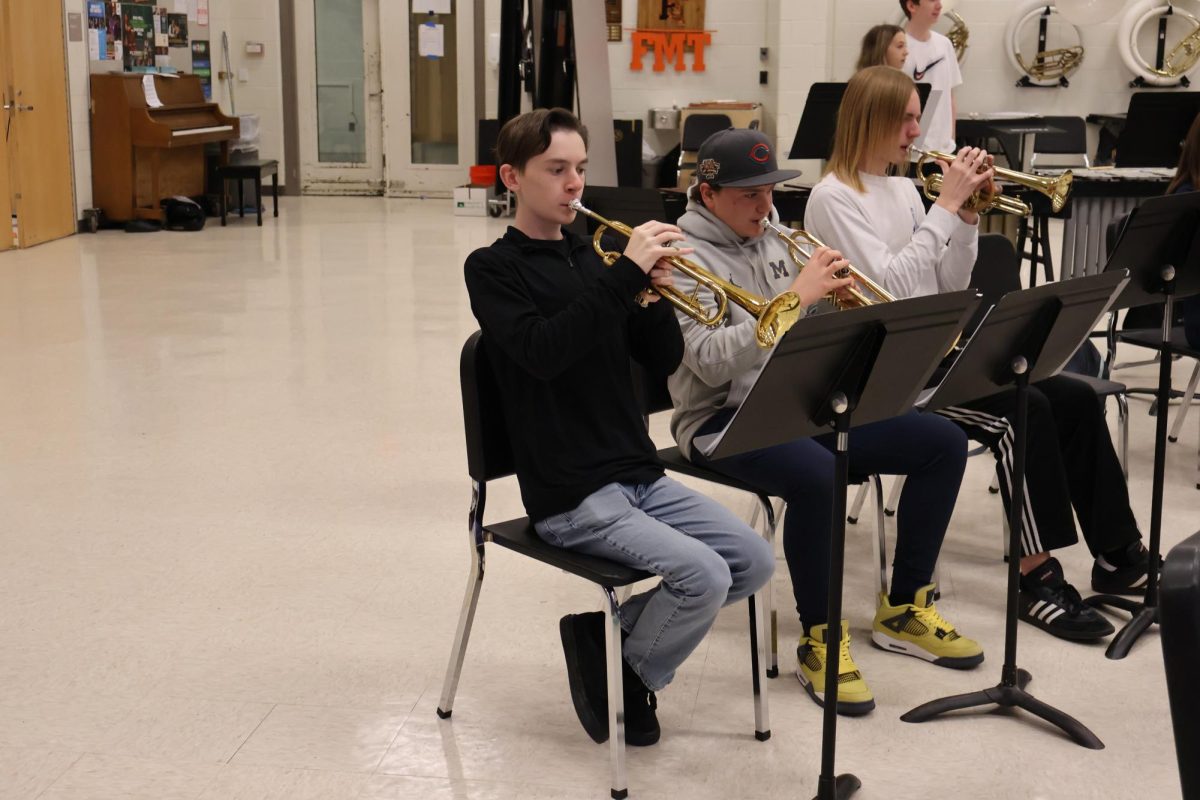The importance of sleep
November 24, 2014
It is 10 p.m. on a Wednesday night. Sophomore Shelby Kinest has just left the Fenton House, where she works, and is heading home. When she gets home, she does her American Studies homework and gets ready for bed. She falls asleep at midnight and she wakes up feeling sleep deprived at 5 a.m.
“I typically have to leave for work at 4:45 p.m., giving me only about a hour-and-a-half to get homework done and relax,” Kinest said. “Then, I usually get home between 9 and 10 p.m., finish my homework, and prepare my things for the next day before I go to bed.”
While many teens like Kinest get only five or less hours of sleep each night, teenagers actually need more to get them through the day.
“Teens need to get nine and-a-quarter hours of sleep each night,” health teacher Vern Miller said. “They average about six and-a-tenth hours of sleep.”
Sleep is crucial to the body’s physical health. During sleep the body heals itself by repairing heart and blood vessels, helps lower the risks of obesity, repairs tissues and cells, makes the immune system stronger, and releases the hormones that promote growth in teens and children.
However, participating in sports, clubs, or taking advanced classes can take a toll on the amount of sleep a teen gets, and then cuts off some of the healing processes the body goes through at night.
“I do cross country and Ambassadors on Mondays,” senior Micali Gadola said. “We have rehearsal on Mondays until 9 p.m. and I also have cross country. I dont’t have time between practices to do my homework, so I have to do it all after 9 p.m.”
A shortage of sleep can pose a problem. The ability to do well in school shrinks as students cut down on their hours of sleep.
“When teens do not get enough sleep, they don’t concentrate as well in class,” Psychology teacher Jill Starr said. “They fall asleep and don’t do as well because their brain hasn’t rejuvenated.”
Sleep deprivation can also produce harmful effects on memory storage in the brain.During the eighth hour of sleep, the short term memories in the brain gets transferred to the part of the brain that processes and stores them as long term memories. If the eigth hour of sleep is not reached, the brain cannot remember those short term memories. In the end, it can harm a student’s success in school as lectures taught in class will not be stored in the brain as information that needs to be remembered.
“When you don’t get enough sleep, you don’t have a lot of energy;’ and you do not think as clearly,” Miller said. “I think sleep is the easiest and most effective way to improve your overall health.”
With this in mind, it is important for students to get enough sleep to prepare for the next school day and wake up with straight Z’s.







